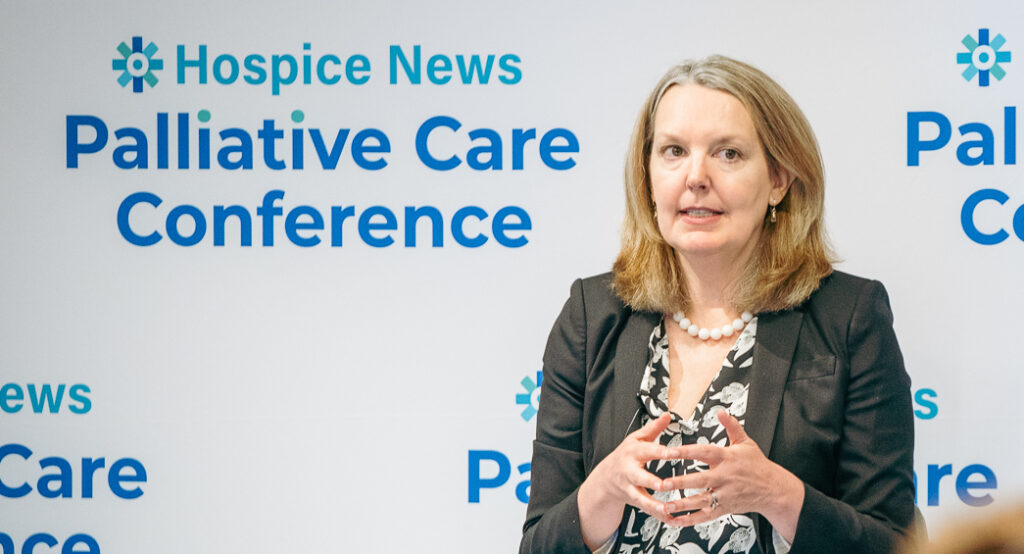The Center for Medicare & Medicaid Innovation (CMMI) is considering a broad spectrum of payment models that could integrate palliative care.
Palliative care providers offer a diverse range of services designed to meet their patients’ complex needs, and forthcoming payment model demonstrations will reflect this heterogeneity, fashioned with inclusive, yet measurable tools, Ellen Lukens, deputy director of CMMI said at the Hospice News Palliative Care Conference in Washington D.C.
This could include demos that fuse palliative care into Accountable Care Organization (ACO) or primary care programs, among others.
“In terms of models, in general, we’re really thinking about how we leverage accountable care and primary care models and other models to provide flexibility to do different things in things like palliative care,” Lukens told Hospice News at the conference. “It’s really important to give providers and other entities that are testing these models tools to be successful. Thinking about where we go from here, that’s a really important context as we think about the future of palliative care.”

Health equity, quality and cost savings will continue to be crucial considerations in model development going forward, she stated.
Ultimately, the goal is to have a health system that achieves “equitable outcomes through person-centered, high-quality care,” with palliative care likely playing a role, according to Lukens.
Health care organizations and other stakeholders have sought greater opportunities for palliative care reimbursement as interest has grown among providers, payers and investors. For instance, questions have percolated around the potential for standardized quality measures, patient eligibility and care delivery, as well as who should provide the service and who should pay for it.
Currently, the patients most likely to be eligible for palliative care include those who suffer from dementia-related illnesses, cancer, diabetes, heart or kidney disease, Parkinson’s disease or stroke, according to the Center to Advance Palliative Care (CAPC).
Some hospice industry groups for several years have called for a dedicated palliative care benefit within Medicare.
While Lukens didn’t rule that out, she reiterated that CMMI is likely to take a multi-faceted approach to palliative care.
“I don’t think it’s an impossibility that we would ever do a model for a specific clinical condition or specific type of service. But again, I don’t think of that as an either-or,” Lukens said. “Whether we’re talking about palliative care in primary care or specialty care, we are increasingly recognizing the heterogeneity of these entities and really focusing on allowing them to participate in our models, but also ensuring that we really want to achieve the same outcomes irrespective.”
Currently, palliative care providers can bill for physician services through Medicare Part B. Other channels for reimbursement include Medicare Advantage supplemental benefits, as well as payment arrangements with ACOs and Managed Services Organizations (MSOs).
Palliative care is also an element of the hospice component of CMMI’s value-based insurance design (VBID) demonstration.
Commonly called the Medicare Advantage carve-in, the agency recently extended the demonstration period to 2030. Originally, the program was slated to end in 2024.
“In that [VBID] model, the Medicare Advantage organizations do have the flexibility to design different arrangements, and I think that’s something that we’re really interested in is our model’s test,” Lukens said. “What we really want to see through this test is what happens, and is there some innovation in the way that Medicare Advantage organizations [can] provide hospice care and potentially palliative care. There’s also a lot of discussion around the cost maybe driving some of that as well.”

